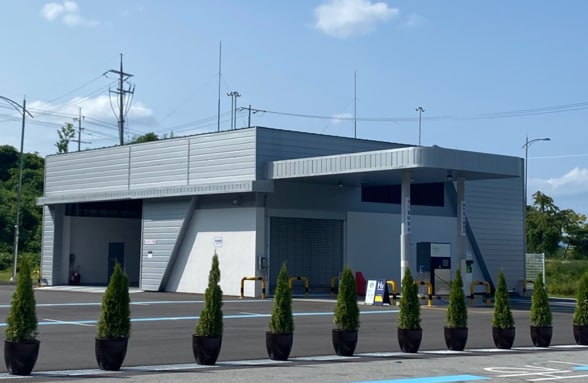Industrial Systems
Our expertise in manufacturing key equipment for various industries, including petrochemicals, oil refineries, and oil&gas plants,
has earned us a distinguished reputation for both technology and quality.
- Industrial Machinery
- Industrial Systems
- Gas Filling Stations
Gas Filling Stations
Hyosung Heavy Industries' gas stations supply gases, such as compressed natural gas (CNG), liquefied natural gas (LNG), and hydrogen, which can be used as vehicle fuels according to the necessary pressure, temperature, and fuel quantity.
The main equipment for supplying and charging vehicle fuels, such as compressors, containers, chargers, and monitoring systems, may vary depending on the type of gas required, and additional facilities may be necessary. Hyosung Heavy Industries has provided CNG, LNG, and hydrogen fueling stations, taking up 40% of the fueling stations in Korea. We have also exported CNG fueling stations to various countries including Indonesia, Russia, and Uzbekistan.
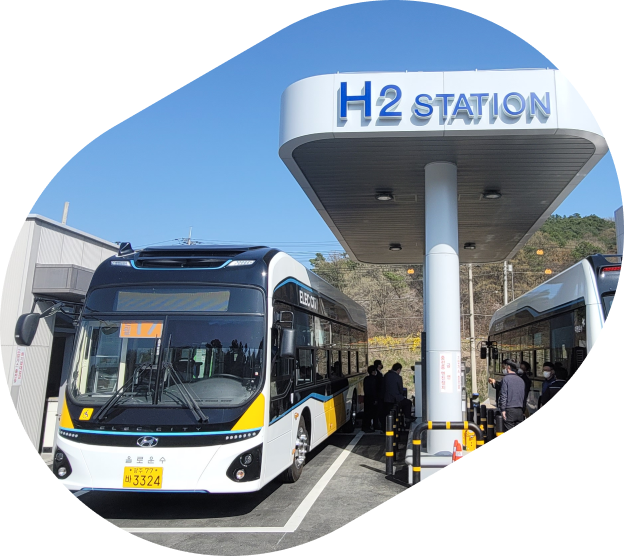
Product Classification
Discover custom solutions that meet your needs.
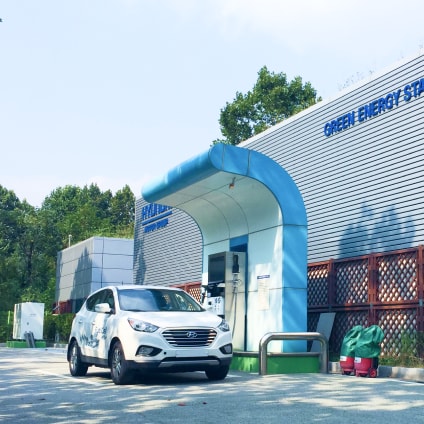
Hydrogen Fueling System
The hydrogen fueling system is a next-generation alternative fuel solution that aims to address the depletion of fossil fuels and global warming. Hyosung Heavy Industries conducts extensive research on the hydrogen fueling system as it is considered the most efficient medium for storing new and renewable energies. It is specifically drawing interest as a system that refuels hydrogen into fuel cell electric vehicles (FCEVs) at high pressure, which is being studied by major car manufacturers globally as a substitute for logistics vehicle fuels such as gasoline and diesel. Because hydrogen gas has a very low specific gravity and unique properties, it requires compression and fueling at a special high pressure of 35 or 70MPa, and temperature and pressure control are critical in this process.
Features
- We have equipped engineering capabilities for the entire fueling system since the construction of pilot fueling stations for automobile manufacturers
- Our facilities assure quality services based on our technical expertise and years of experience in construction and repair, holding the largest number of gas stations in Korea
- By continuously expanding our business capabilities, including the expansion into the liquefied hydrogen business, we retain the largest number of hydrogen experts in Korea specializing in hydrogen fueling systems
- We have minimized the fueling interruption time by providing a prompt regional after-sales response network nationwide
Model
| Gaseous hydrogen fueling stations |
|
|---|---|
| Liquid hydrogen fueling stations |
|
| Research and test facilities |
|
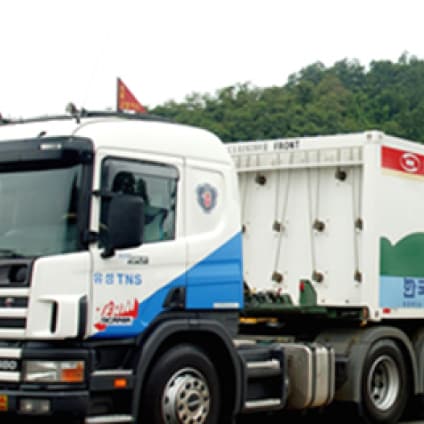
CNG Fueling System
Hyosung Heavy Industries has played a key role in the revitalization of the natural gas vehicle (NGV) industry in Korea since it successfully developed a CNG fueling system in 2001. We have partnered with top-tier compressor manufacturers such as Ariel and BHGE to offer a complete range of CNG fueling system services, including technical support and follow-up management.
Features
- We provide an efficient fueling system, developed based on 50 years of accumulated technology in the fields of industrial and electrical equipment
- We design systems that are optimized for different suction pressure conditions, including those that are at or above 60kg/cm2, to ensure optimal capacity and efficiency
- Various operation modes (buffer and cascade) are available to enable economical operation
- We have improved the accuracy of the fueling amount in the electronic temperature compensation system
- Fast fueling available (takes 5–6 minutes for a bus; within 2 minutes for passenger cars)
- We ensure a flexible system considering future expansion and growth
- We have established a service network and we provide online learning services
- Simultaneous fueling is possible with 100% charging capacity
- We offer after-sales service at a low cost
- Low noise and low vibration
- We ensure stability by applying relevant standards such as KS, ASME, NFPA, UL, DOT, AGA, and API
Model
| HI-CNG-100 series |
|
|---|---|
| HI-CNG-200 series | This fueling system is mainly utilized in bus depots and is designed for medium to large-duty vehicles such as natural gas buses, trucks, and sweeper trucks, which require a compressor with a capacity of 250 HP. |
| HI-CNG-300 series | Most commonly used for buses and trucks, which require a compressed fueling system with 300 HP or more |
| HI-CNG-400 series | A high-capacity fueling system for buses, trucks, and mobile trailers, which can be adjusted based on the necessary power requirements |
Purpose
- Charging method: Rapid, slow, and combined charging
- Charge target: Public, commercial, private, and Mother & Daughter charging stations
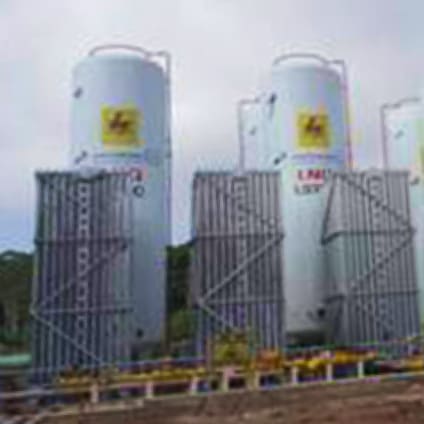
LNG Fueling System
LNG is obtained from gas fields after being liquefied. Methane is the primary component, which is odorless and colorless, with minimal pollutants and a high calorific value, making it an ideal raw material for city gas production. LNG undergoes a liquefaction process which reduces its volume to 1/600 of its gaseous state. Due to tis extremely low boiling point of -162°C, it needs to be stored and transported in a specialized insulated tank or container that can maintain its temperature below its boiling point.
Features
- LNG is lighter than air with a specific gravity of 0.65, making it safe as it quickly diffuses in case of a leak
- Compared to gasoline, diesel, and LPG, LNG has a higher autoignition temperature, lowering the risk of fire (gasoline 260℃, diesel 257℃, LPG 476℃, natural gas 540℃)
- In contrast to CNG systems that distribute gas via a pipeline network, LNG systems do not require a pipeline network since vehicles are used to supply natural gas
- LNG guarantees lower operating cost compared to CNG, as there is no need for large-capacity compressors
Model
| LNG fueling system |
|
|---|---|
| LCNG fueling system |
|
References
Our track records speak for ourselves.
-
Republic of Korea
Hydrogen Fueling Station in Jangdeung-dong, Gwangju
- Gwangju
- Gwangju Institute of Green-Car Advancement
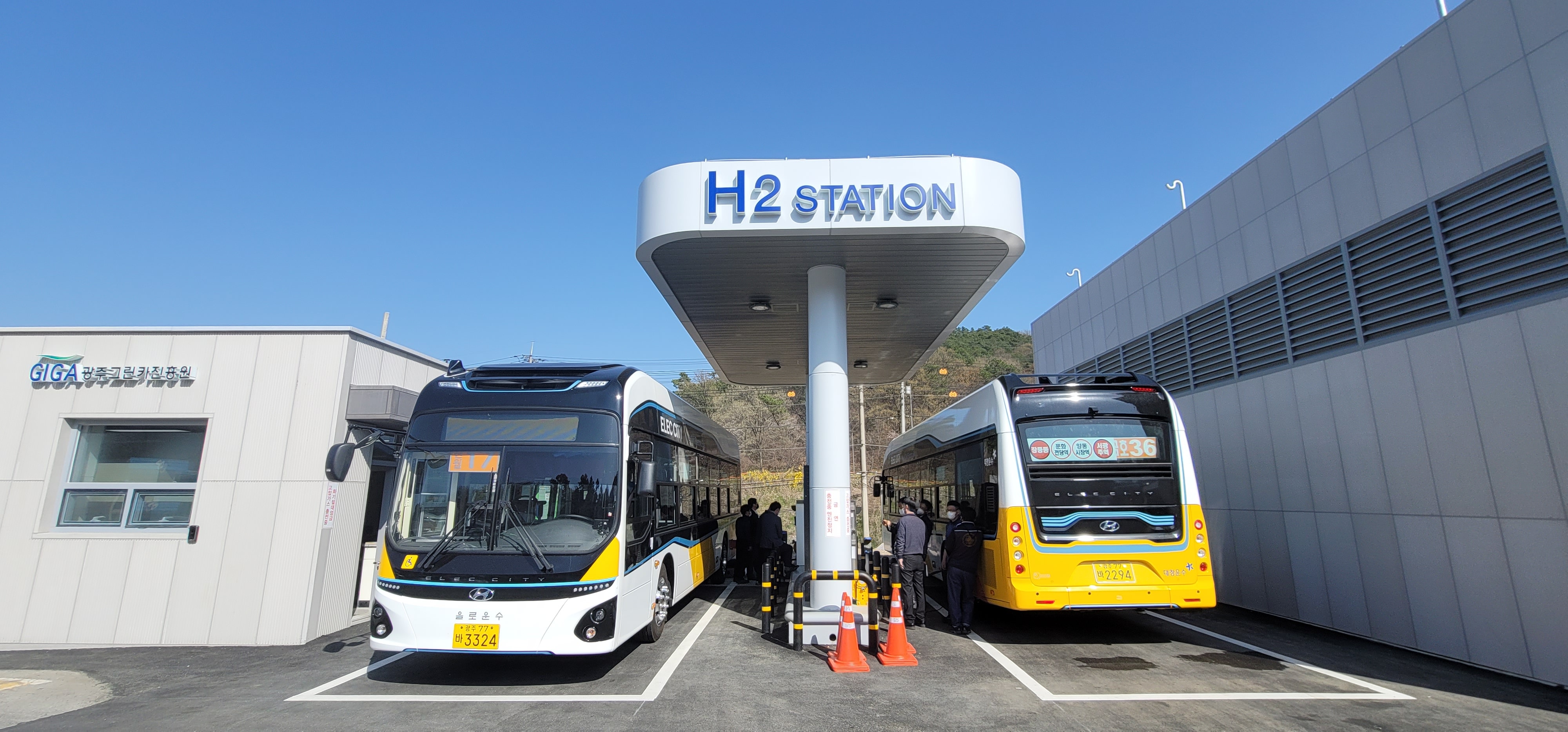
-
Republic of Korea
Hydrogen Fueling Station within Government Complex Sejong
- Sejong
- HyNet
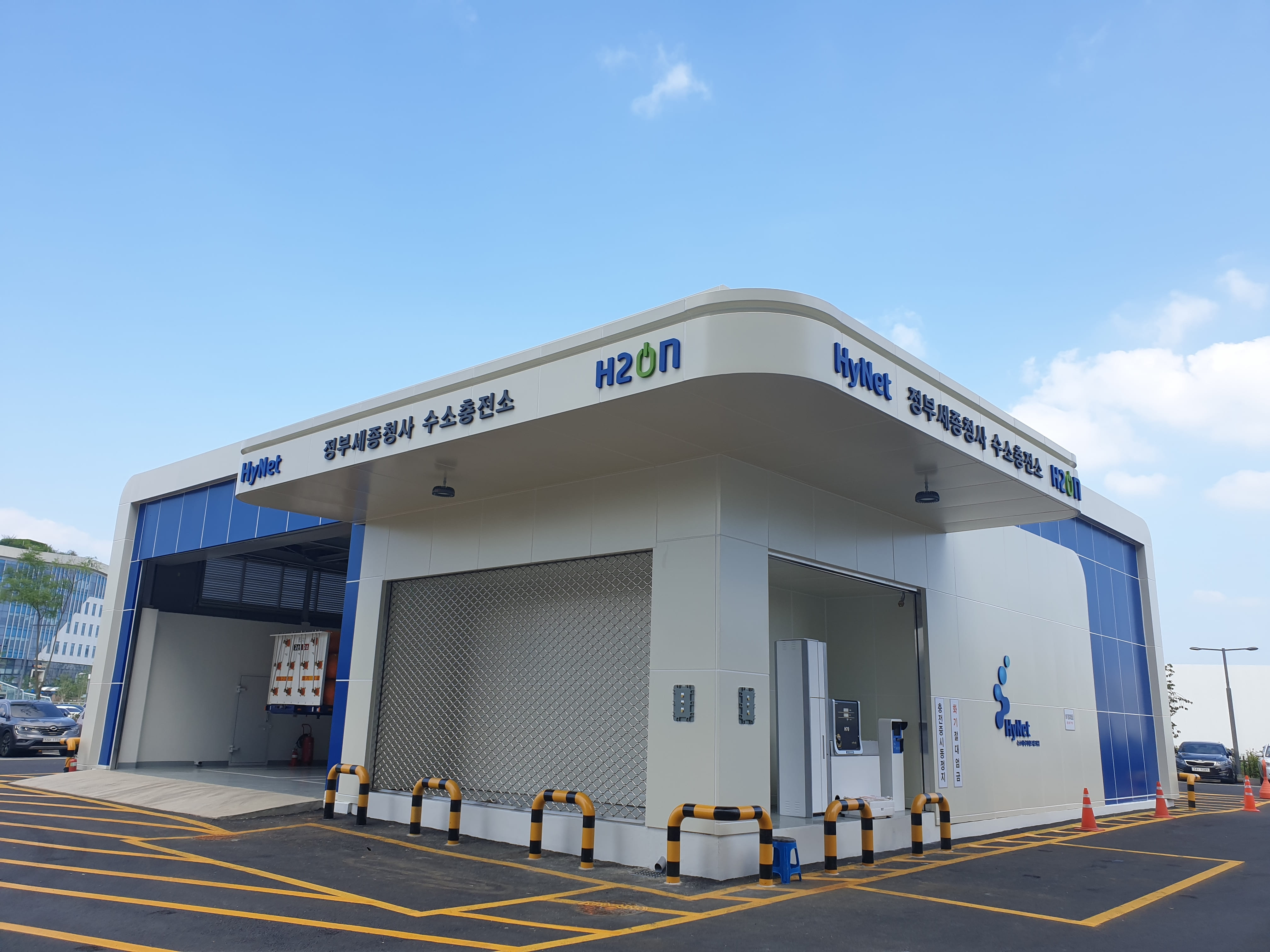
-
Republic of Korea
Hydrogen Fueling Station within the National Assembly, Seoul
- Seoul
- Hyundai Motors

-
Republic of Korea
Hydrogen Fueling Station in Yangjae-dong, Seoul
- Seoul
- Seoul Energy Corporation
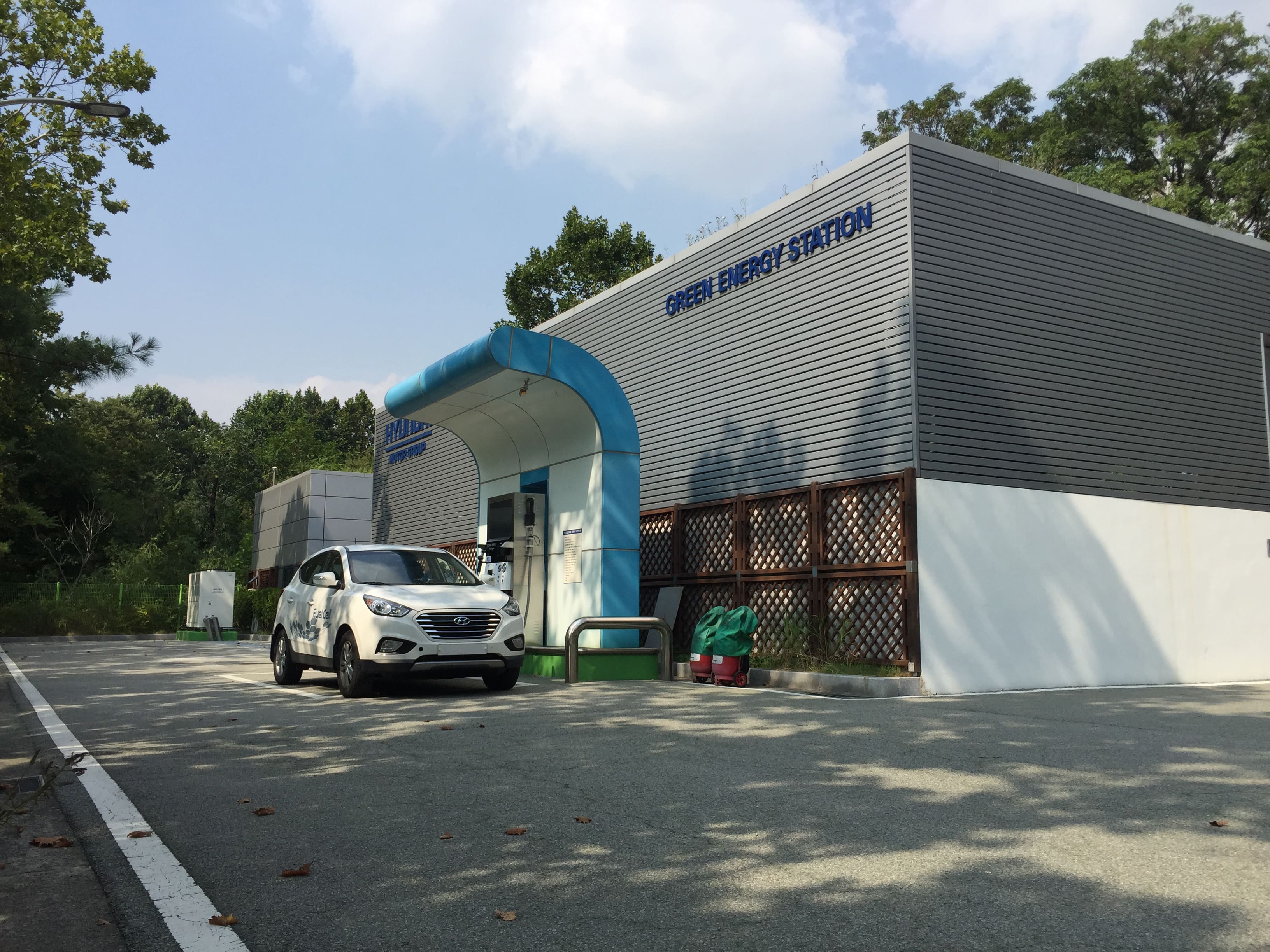
-
Republic of Korea
Hydrogen Fueling Station at the Osu Service Area
- Jeollabuk-do
- Korea Expressway Corporation
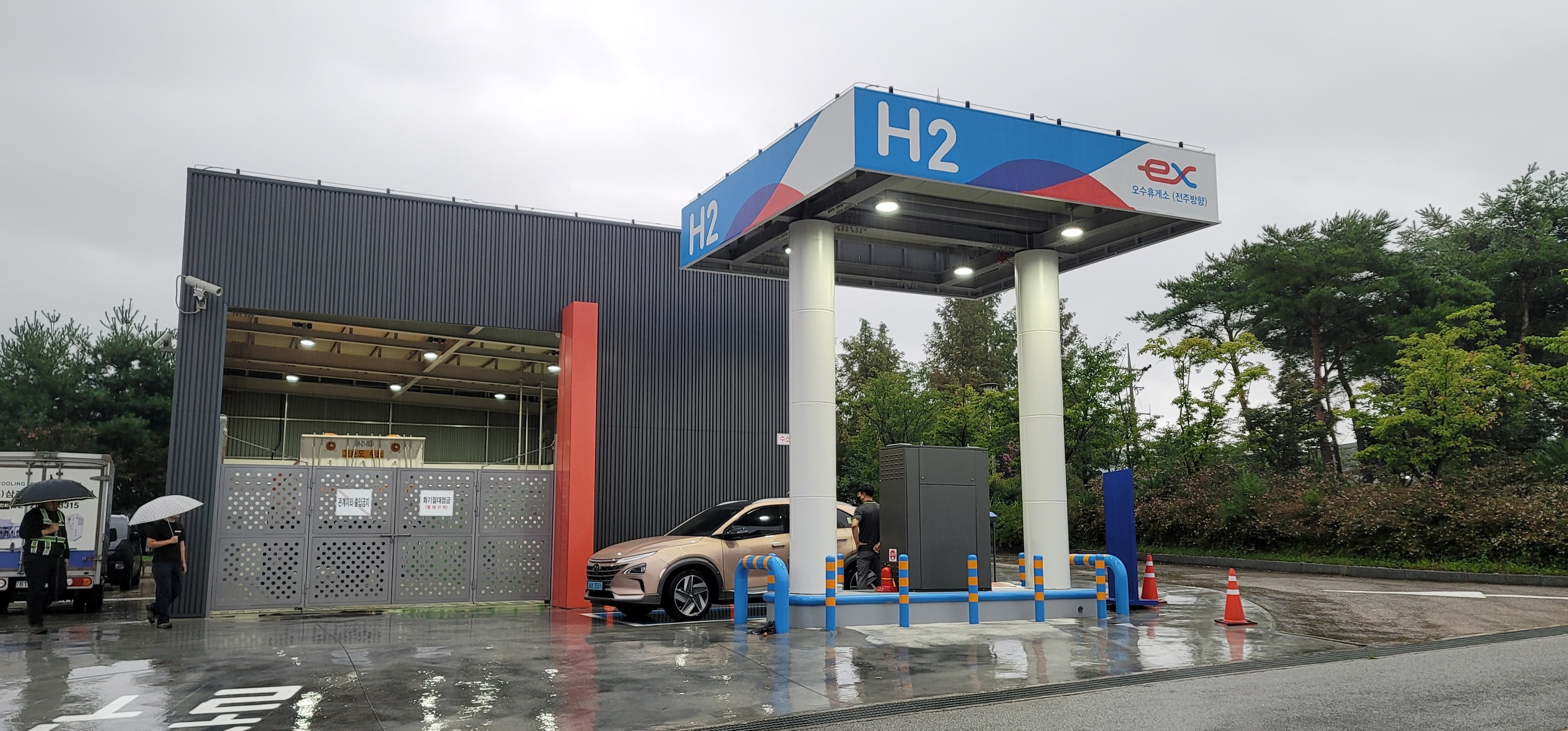
-
Republic of Korea
Hydrogen Fueling Station in Chuncheon
- Chuncheon, Gangwon-do
- Gangwon Technopark
